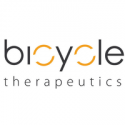Completed Phase I dose escalation; results expected in 3Q22
CAMBRIDGE, England & BOSTON--(BUSINESS WIRE)--Jun. 8, 2022-- Bicycle Therapeutics plc (NASDAQ: BCYC), a biotechnology company pioneering a new and differentiated class of therapeutics based on its proprietary bicyclic peptide (Bicycle®) technology, today announced the first patient has been dosed in the expansion portion of the Phase I/II study of BT5528, Bicycle’s second-generation Bicycle Toxin Conjugate (BTC™) targeting EphA2.
“We believe EphA2 is an attractive target for cytotoxin delivery and BT5528 has the potential to overcome the significant safety concerns seen with an antibody drug conjugate (ADC) approach to targeting EphA2,” said Kevin Lee, Ph.D., Chief Executive Officer of Bicycle Therapeutics. “We are pleased with the molecule’s emerging safety profile and early signs of anti-tumor activity and look forward to providing additional data from the completed Part A portion of the Phase I/II trial next quarter.”
READ FULL PRESS RELEASE AT BICYCLE THERAPEUTICS








